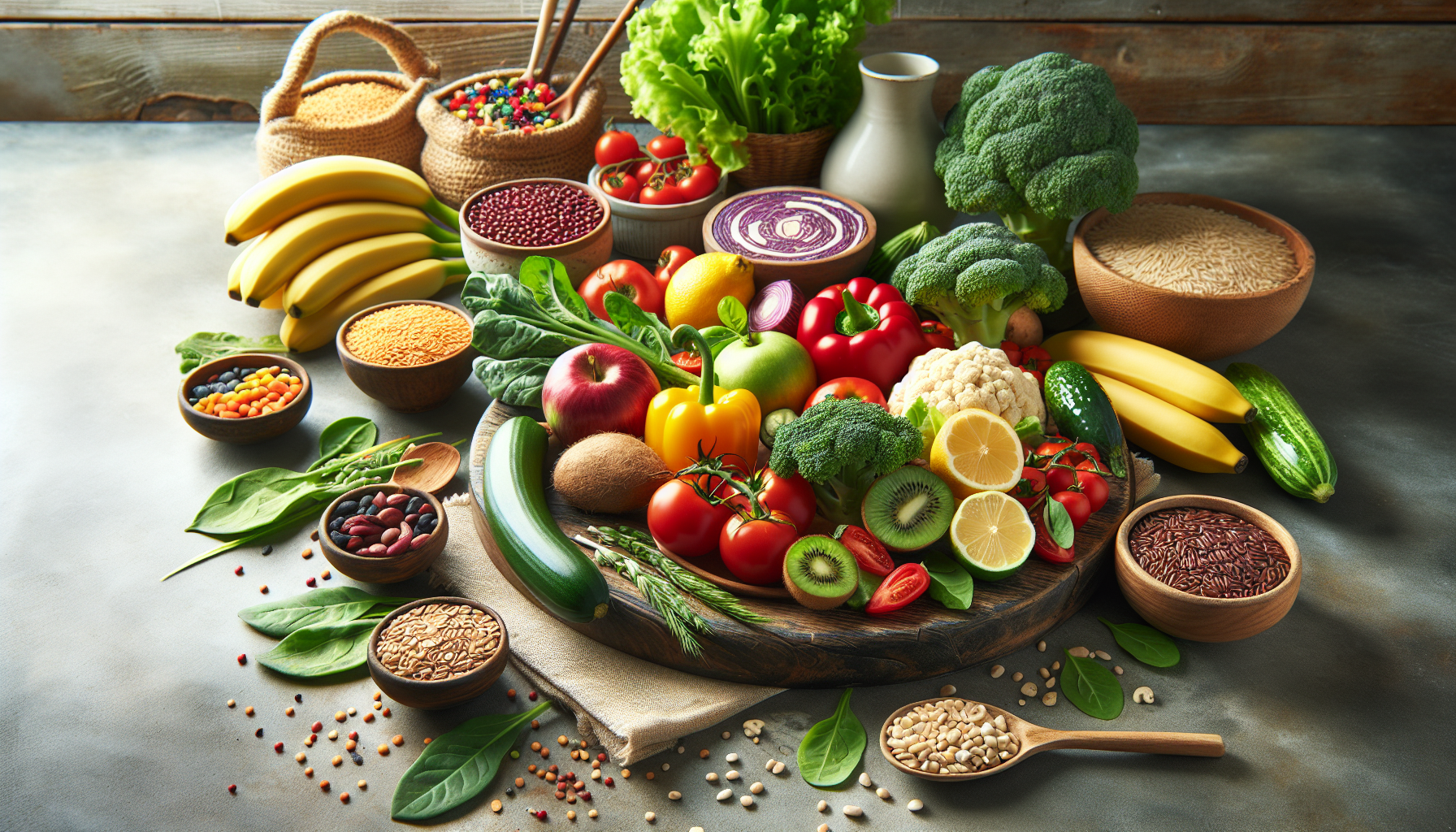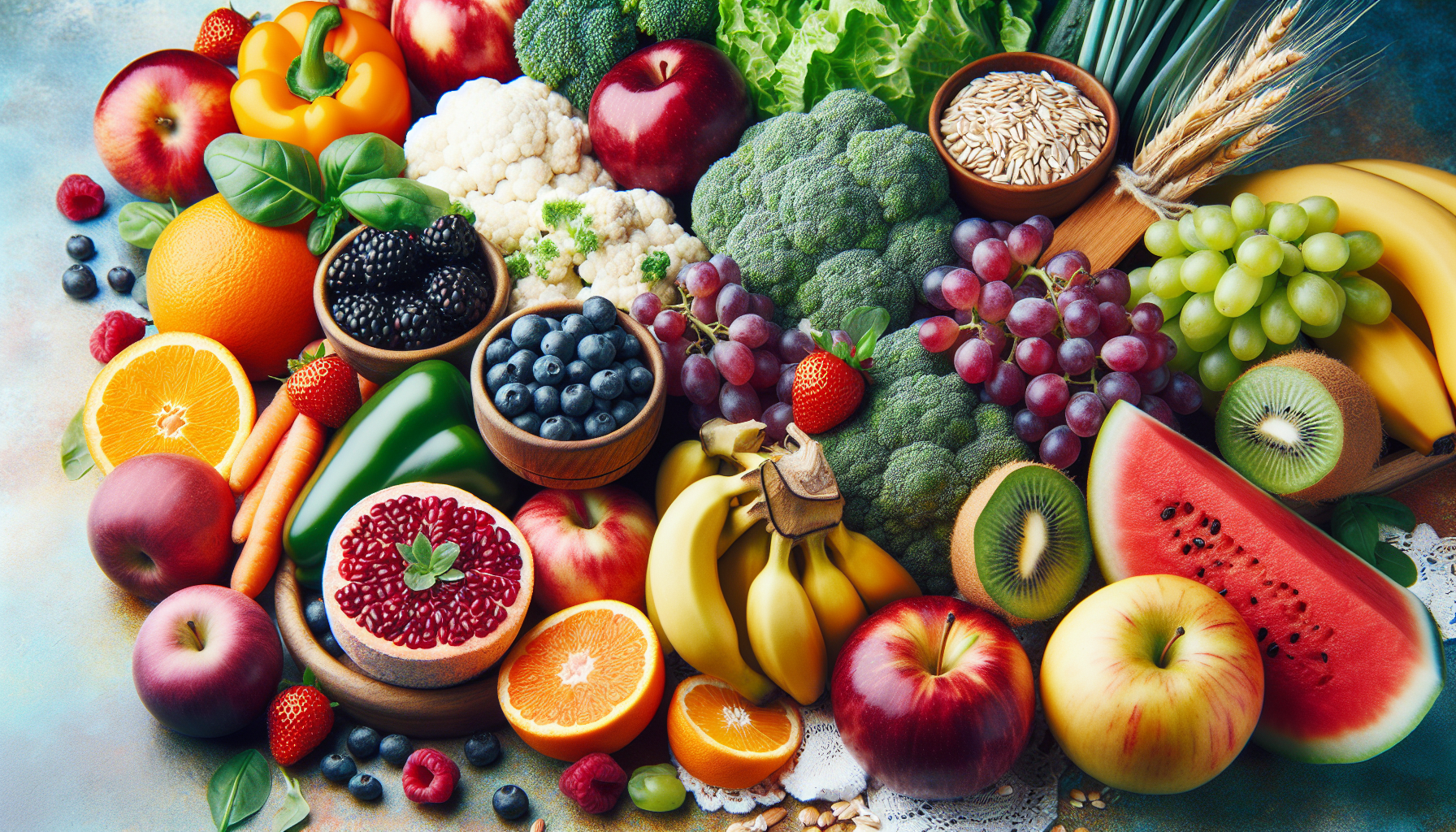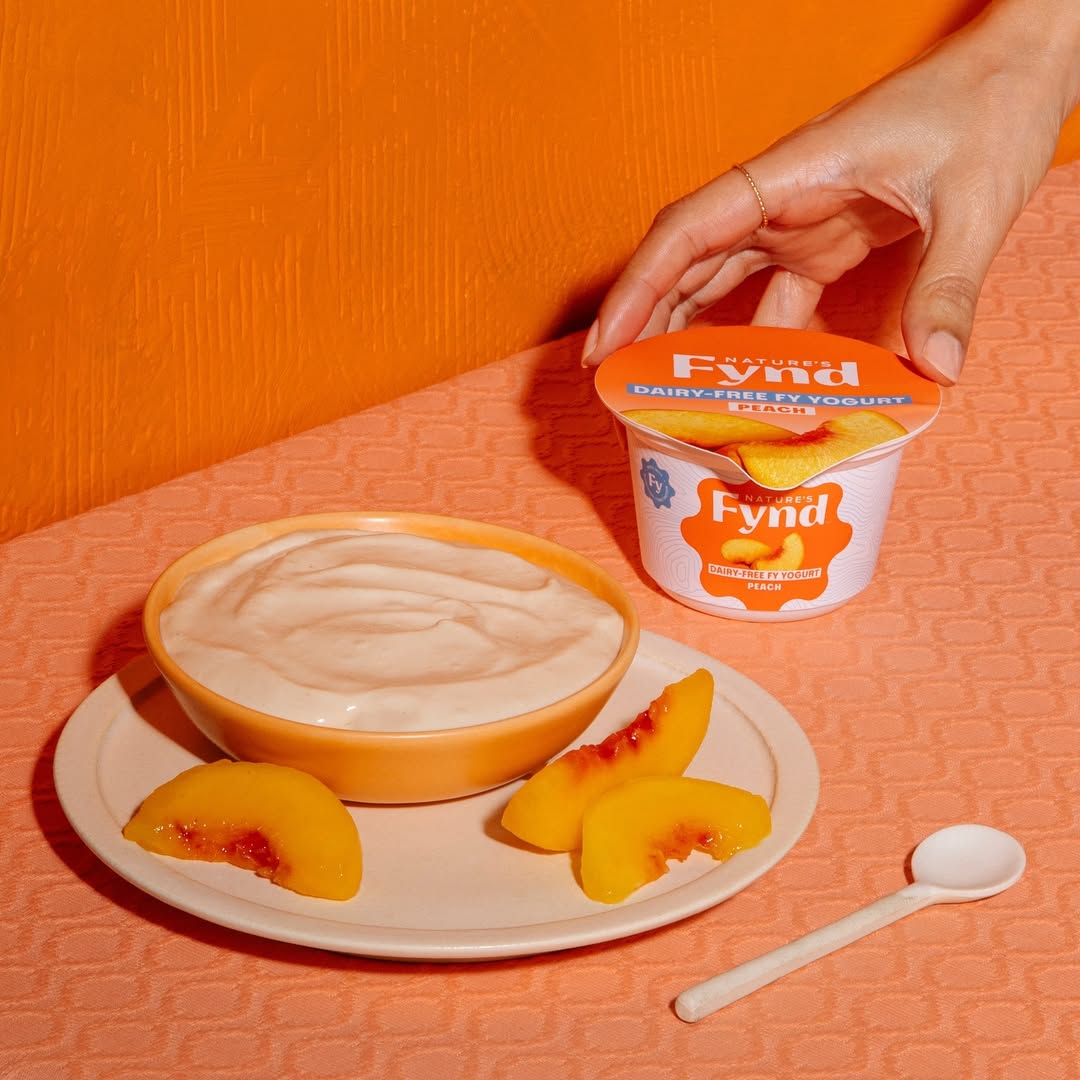Are you looking to embrace a gluten-free and vegan lifestyle? Well, you’ve come to the right place! This article will provide you with all the essential information and tips to help you navigate the world of gluten-free vegan living. Whether you’re doing it for health reasons, ethical beliefs, or simply want to explore new dietary options, we’ve got you covered. From delicious plant-based recipes to advice on finding gluten-free alternatives, we’re here to support you on your journey towards a healthier and more sustainable lifestyle. So, let’s jump right in and discover the wonders of a gluten-free vegan lifestyle!
Table of Contents
What is a Gluten Free Vegan Lifestyle?
A gluten free vegan lifestyle refers to a way of eating that eliminates both gluten and animal products from your diet. Gluten is a protein found in wheat, barley, and rye, and can cause digestive issues for some individuals. Veganism, on the other hand, is a lifestyle that excludes all animal products, including meat, dairy, eggs, and honey. By combining these two dietary choices, individuals follow a diet that is free from gluten and any animal-derived ingredients.
Definition
A gluten free vegan lifestyle means consuming foods that are free from gluten and any animal products. This means avoiding not only meat, dairy, and eggs, but also other common animal-derived ingredients such as gelatin, honey, and certain food colorings. Instead, individuals following this lifestyle rely on plant-based foods for their nutrients and sustenance. This includes fruits, vegetables, grains, legumes, nuts, and seeds.
Benefits
There are several benefits associated with following a gluten free vegan lifestyle. Firstly, by eliminating gluten, individuals who are sensitive or intolerant to this protein can experience improved digestion and relief from symptoms such as bloating, abdominal pain, and diarrhea. Additionally, by removing animal products from their diet, individuals may also experience better weight management, reduced risk of chronic diseases, increased energy levels, and better skin health.
Challenges
While a gluten free vegan lifestyle can have numerous benefits, it also comes with its own set of challenges. One of the main challenges is limited food options. Avoiding both gluten and animal products can narrow down the variety of foods available, especially when eating out or traveling. Another challenge is the risk of nutritional deficiencies, as certain nutrients like protein, iron, calcium, and vitamin B12 are more commonly found in animal-based foods. Meal planning and adapting to social situations where vegan and gluten free options may be limited can also pose challenges to those following this lifestyle.
Health Benefits of a Gluten Free Vegan Lifestyle
Improved Digestion
One of the significant benefits of following a gluten free vegan lifestyle is improved digestion. Gluten sensitivity or intolerance can lead to digestive issues such as bloating, abdominal pain, and diarrhea. By eliminating gluten from your diet, you can alleviate these symptoms and improve overall digestive health.
Weight Management
A gluten free vegan lifestyle can also support weight management. Plant-based foods are generally lower in calories and saturated fats compared to animal-based products. By focusing on whole, unprocessed plant foods, individuals can maintain a healthy weight or even shed excess pounds.
Reduced Risk of Chronic Diseases
By eliminating both gluten and animal products from your diet, you may also reduce the risk of chronic diseases. Plant-based diets have been linked to a lower risk of conditions such as heart disease, high blood pressure, diabetes, and certain types of cancer. These diets are typically higher in fiber, antioxidants, and essential nutrients that promote overall health.
Increased Energy Levels
Following a gluten free vegan lifestyle can provide you with increased energy levels. Plant-based foods are rich in complex carbohydrates, which are a long-lasting source of energy for the body. Additionally, by avoiding foods that can cause digestive discomfort, you may experience improved energy and vitality throughout the day.
Better Skin Health
A gluten free vegan lifestyle can also contribute to better skin health. Some individuals may have skin conditions that are aggravated by gluten or dairy. By eliminating these potential triggers, you may notice a reduction in skin issues such as acne, eczema, or psoriasis. Additionally, the abundance of antioxidants found in plant-based foods can promote a healthy complexion.

Potential Challenges of a Gluten Free Vegan Lifestyle
Limited Food Options
One of the main challenges of following a gluten free vegan lifestyle is the limited food options available. When avoiding both gluten and animal products, it can sometimes be challenging to find suitable options, especially when dining out or traveling. It requires careful planning and research to ensure you have access to a variety of nutritious foods. However, as the popularity of gluten free and vegan diets grows, more options are becoming available in restaurants and supermarkets.
Risk of Nutritional Deficiencies
Another challenge of a gluten free vegan lifestyle is the risk of nutritional deficiencies. Certain nutrients, such as protein, iron, calcium, vitamin B12, zinc, and omega-3 fatty acids, are commonly found in animal-based foods. Therefore, it is essential for individuals following a gluten free vegan lifestyle to ensure they are meeting their nutritional needs through plant-based sources or appropriate supplementation.
Need for Meal Planning
Meal planning is crucial when following a gluten free vegan lifestyle. As it may be more challenging to find suitable options on the go, taking the time to plan your meals and snacks in advance can make a significant difference. This will help ensure you have access to the necessary ingredients and prevent you from feeling restricted or tempted to indulge in foods that do not align with your dietary choices.
Adapting to Social Situations and Eating Out
Adapting to social situations and eating out can be another challenge when following a gluten free vegan lifestyle. Not all restaurants or social gatherings may offer suitable options that meet your dietary needs. It is important to communicate your requirements in advance, research restaurants that cater to gluten free and vegan diets, and be prepared to ask questions and make modifications to dishes when necessary.
How to Transition to a Gluten Free Vegan Lifestyle
Educate Yourself
Before embarking on a gluten free vegan lifestyle, it is important to educate yourself about the dietary restrictions and requirements. Learn about gluten-containing foods, common animal-derived ingredients, and alternative sources of nutrients. Understanding the basics will help you make informed decisions and navigate various situations confidently.
Gradual Approach
Transitioning to a gluten free vegan lifestyle does not have to happen overnight. Adopting a gradual approach can make the transition more manageable and sustainable. Start by gradually reducing your intake of animal products and gluten-containing foods. This can involve incorporating more plant-based meals into your diet and gradually eliminating gluten-containing grains, replacing them with gluten free alternatives.
Seek Support
Seeking support from others who follow a similar lifestyle can be incredibly helpful during the transition. Join online communities, support groups, or find a mentor who can provide guidance and share their experiences. Connecting with like-minded individuals can provide motivation, inspiration, and a sense of community.
Experiment with Recipes
Exploring new recipes and trying out different plant-based options is an exciting part of transitioning to a gluten free vegan lifestyle. Experiment with a wide variety of fruits, vegetables, grains, legumes, nuts, and seeds to discover new flavors and textures. There are countless online resources, cookbooks, and recipe collections tailored to gluten free and vegan diets to inspire your culinary adventures.
Stock Up on Gluten Free Vegan Pantry Staples
Stocking up on pantry staples that align with a gluten free vegan lifestyle is essential for success. Make sure to have a variety of gluten free grains, such as quinoa, brown rice, buckwheat, millet, and amaranth. Legumes, such as lentils, beans, and chickpeas, are excellent sources of plant-based protein. Other staples include tofu, tempeh, and seitan for protein alternatives, as well as essential nutrients like iron, calcium, and zinc.

Essential Nutrients for a Gluten Free Vegan Lifestyle
Protein
Protein is a crucial nutrient when following a gluten free vegan lifestyle. It is important for muscle growth, repair, and overall health. Plant-based sources of protein include legumes, tofu, tempeh, seitan, quinoa, and nuts. It is essential to consume a variety of plant-based protein sources to ensure you are meeting your daily protein requirements.
Iron
Iron is another important nutrient, especially for individuals following a gluten free vegan lifestyle. Plant-based sources of iron include leafy green vegetables, legumes, fortified grains and cereals, dried fruits, and seeds. Pairing iron-rich foods with sources of vitamin C, such as citrus fruits or bell peppers, can enhance iron absorption.
Calcium
Calcium is vital for bone health and other essential bodily functions. Plant-based sources of calcium include leafy green vegetables like kale and broccoli, fortified plant-based milk alternatives, tofu, almonds, and sesame seeds. Adequate vitamin D intake, which can be obtained through sunlight exposure or appropriate supplementation, is also important for calcium absorption.
Vitamin B12
Vitamin B12 is primarily found in animal products, so it is crucial for individuals following a gluten free vegan lifestyle to ensure they are obtaining this nutrient through supplementation or fortified foods. Vitamin B12 is necessary for red blood cell formation, nerve function, and DNA synthesis.
Zinc
Zinc is an essential mineral that plays a role in numerous bodily functions, including immune system function, wound healing, and DNA synthesis. Plant-based sources of zinc include legumes, whole grains, nuts, seeds, and fortified plant-based milk alternatives.
Omega-3 Fatty Acids
Omega-3 fatty acids are important for brain health, heart health, and overall well-being. Plant-based sources of omega-3 fatty acids include flaxseeds, chia seeds, walnuts, and hemp seeds. Including these foods in your diet can help meet your omega-3 fatty acid needs.
Gluten Free Grains and Alternatives
Quinoa
Quinoa is a versatile gluten free grain that is packed with protein and essential nutrients. It can be used as a substitute for rice or couscous, and can be enjoyed in salads, stir-fries, or as a base for grain bowls.
Brown Rice
Brown rice is a staple gluten free grain that provides fiber, minerals, and a nutty flavor. It can be used as a side dish, in stir-fries, in rice bowls, or as an ingredient in gluten free baking.
Buckwheat
Despite its name, buckwheat is not wheat and is naturally gluten free. It can be used to make pancakes, noodles, and porridge. Buckwheat flour is also commonly used in gluten free baking.
Millet
Millet is a gluten free grain that is slightly sweet and has a light texture. It can be used in pilafs, porridges, and as a substitute for rice and couscous.
Amaranth
Amaranth is a highly nutritious grain that is rich in protein, fiber, and essential amino acids. It can be used in porridges, as a thickening agent in soups and stews, or in gluten free baking.
Plant-Based Protein Sources
Lentils
Lentils are an excellent source of plant-based protein and are versatile in many dishes. They can be used to make soups, stews, curries, and even veggie burgers.
Beans
Beans, including black beans, kidney beans, chickpeas, and pinto beans, are high in protein and fiber. They can be used in salads, wraps, chilis, and as a base for plant-based patties.
Chickpeas
Chickpeas, also known as garbanzo beans, are a staple in many plant-based diets. They are a great source of protein and can be used to make hummus, falafel, stews, curries, and roasted as a snack.
Tofu
Tofu is a versatile plant-based protein source that can be used in a variety of dishes. It can be marinated and grilled, stir-fried, blended into smoothies, or crumbled and used as a substitute for scrambled eggs.
Tempeh
Tempeh is another soy-based protein source that is fermented, making it easier to digest. It has a nutty flavor and can be marinated, grilled, sautéed, or crumbled into dishes.
Seitan
Seitan is a protein-rich food made from wheat gluten, so it may not be suitable for those following a gluten free diet. However, for individuals who are only avoiding animal products, seitan is a popular meat substitute that can be used in a variety of dishes, such as stir-fries and sandwiches.
Delicious Gluten Free Vegan Recipes
Quinoa Salad with Roasted Vegetables
This refreshing salad combines cooked quinoa with roasted vegetables, such as bell peppers, zucchini, and cherry tomatoes. Tossed in a zesty lemon vinaigrette, it is a perfect dish for a light lunch or dinner.
Black Bean and Veggie Tacos
These flavorful tacos are filled with a hearty mixture of black beans, sautéed veggies, and spices. Serve them in gluten free corn tortillas and top them with fresh salsa, avocado, and a squeeze of lime for a satisfying meal.
Vegan Lentil Curry
This aromatic and flavorful lentil curry is a nourishing and protein-packed dish. Combining lentils, vegetables, and a blend of spices, it is a comforting and satisfying meal that can be served with rice or gluten free naan bread.
Gluten Free Vegan Pizza
Who says you can’t enjoy pizza on a gluten free vegan lifestyle? With the right ingredients, you can create a delicious pizza using a gluten free crust, dairy-free cheese, and an array of colorful and flavorful toppings, such as roasted vegetables, vegan sausage, or fresh herbs.
Tofu Stir-Fry with Vegetables
This quick and easy stir-fry showcases tofu as the main protein source. Sautéed with an assortment of fresh vegetables, such as bell peppers, broccoli, and snap peas, and flavored with a tangy stir-fry sauce, it is a simple yet satisfying meal that can be enjoyed with gluten free rice noodles or quinoa.
Tips for Dining Out on a Gluten Free Vegan Diet
Research Restaurants in Advance
Before dining out, do some research to find restaurants that offer options suitable for a gluten free vegan diet. Look for menus that specifically indicate gluten free and vegan options or call ahead to inquire about their offerings. Many restaurants now cater to various dietary preferences and can accommodate your needs with delicious plant-based dishes.
Communicate Your Needs
When dining out, don’t hesitate to communicate your dietary needs to the restaurant staff. Ask questions about ingredients and preparation methods to ensure your meal is gluten free and vegan. Most restaurants are willing to accommodate dietary restrictions and can provide suitable alternatives or modifications to their dishes.
Focus on Whole Foods
When dining out, opt for dishes that feature whole, unprocessed plant-based ingredients. This will ensure you are getting the most nutritional value from your meal. Choose dishes that incorporate vegetables, legumes, whole grains, and plant-based protein sources for a well-balanced and satisfying dining experience.
Ask Questions
If you are unsure about the ingredients or preparation methods of a particular dish, don’t hesitate to ask questions. Your server should be able to provide you with the necessary information or consult the chef if needed. It is better to be proactive and ensure your meal meets your dietary requirements rather than risking consuming gluten or animal products unintentionally.
Consider Ethnic Cuisine
Exploring ethnic cuisines can open up a world of delicious gluten free vegan options. Many cultures have traditional dishes that are naturally gluten free and vegan or can be easily modified to meet your needs. Indian, Thai, Mexican, and Mediterranean cuisines often offer a wide range of plant-based options that are bursting with flavor.
Resources for a Gluten Free Vegan Lifestyle
Gluten Free Vegan Blogs and Websites
There are several informative blogs and websites dedicated to gluten free vegan living. They provide recipes, tips, and guidance for those following this lifestyle. Some popular blogs and websites include Minimalist Baker, Oh She Glows, Gluten Free Vegan Pantry, and the Gluten-Free Vegan Girl.
Cookbooks and Recipe Collections
There are numerous cookbooks and recipe collections available that focus specifically on gluten free vegan recipes. These resources provide inspiration and guidance for creating delicious meals without compromising your dietary choices. Some recommended cookbooks include “The Gluten-Free Vegan” by Susan O’Brien and “Vegan Comfort Classics” by Lauren Toyota.
Online Communities and Support Groups
Joining online communities and support groups can provide you with a sense of community and a platform to share experiences, tips, and suggestions. Facebook groups, forums, and social media platforms dedicated to gluten free vegan living can offer support, recipe recommendations, and motivation on your journey.
Gluten Free Vegan Certification Organizations
Certification organizations such as The Gluten Intolerance Group (GIG) and The Vegan Society can provide valuable resources and information for individuals following a gluten free vegan lifestyle. These organizations offer certifications, product guides, and educational materials to help you navigate a gluten free vegan lifestyle more effectively.
In conclusion, a gluten free vegan lifestyle is a way of eating that involves avoiding gluten and animal products. This lifestyle offers numerous health benefits, including improved digestion, weight management, reduced risk of chronic diseases, increased energy levels, and better skin health. However, there are also challenges to consider, such as limited food options and the risk of nutritional deficiencies. Transitioning to a gluten free vegan lifestyle requires education, support, and planning. By incorporating essential nutrients through plant-based sources, experimenting with recipes, and ensuring access to gluten free grains and alternatives, you can thrive on a gluten free vegan diet. With the right resources, dining out can also be an enjoyable experience. By researching restaurants, communicating your needs, focusing on whole foods, and considering ethnic cuisine, you can find delicious options that align with your dietary choices. Embrace the gluten free vegan lifestyle and enjoy the benefits of a healthier, more sustainable way of eating.






